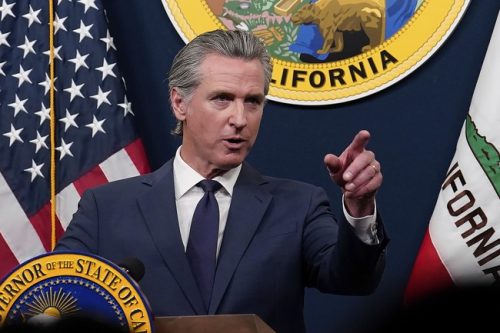The debate over housing asylum seekers in Crowborough turned into a local uproar when a Greens Party deputy leader warned that the plan to house 600 men at an army camp was mishandled and unsafe, exposing tensions between national decisions and community concerns.
The U.K. is facing a growing strain from migration and the handling of asylum seekers, and those pressures are showing up in towns across the country. Local services, policing, and residents are all being asked to absorb the consequences of national policy decisions that often arrive without clear explanation. When policy hits a community directly, the political framing falls away and practical problems demand attention.
For years, national leaders have been accused of prioritizing optics over outcomes, and that accusation is gaining traction in places forced to host large groups of arrivals. Critics point to rising crime reports and cultural friction in certain areas where integration has failed. Those concerns shape a blunt, skeptical view of top-down relocation plans.
In Crowborough, the Greens Party deputy leader Rachel Millward publicly objected after the Home Office revealed plans to use the army camp as temporary accommodation. Why? Safety concerns, of course.
Millward’s letter reads in part (emphasis added):
We are writing to state our strong objection to the decision you have taken to use Crowborough Army Camp as a temporary location for 600 asylum seekers, because the dire mismanagement of the situation is already causing major problems, and because we simply do not have information to reassure us that the wellbeing and safety of both asylum seekers and local communities will be properly safeguarded.
🚨NEW: The new Greens party deputy-leader Rachel Millward has objected to housing asylum seekers in her constituency, citing safety concerns pic.twitter.com/DVLiu3xZIs
— GB Politics (@GBPolitcs) November 10, 2025
As you know, our Council was not told that you had made this decision until after the news was leaked to the press. Along with East Sussex County Council we received a strictly confidential briefing on 10th October in which our officers learned that you were considering using the Camp. We raised significant concerns about the suitability of the site, but we were told that any decision about its use was a matter for you, and you alone, as Minister.
Following that briefing we wrote to you and highlighted various concerns — quite clearly accommodating 600 men on one site with no right to work brings significant risks. We had concerns about staffing resource at the camp, about police provision and about the additional strain on already over-stretched public services. Crucially, we clarified that it would be essential for the Home Office to communicate any plans properly and meaningfully with local residents. We requested you engage with all relevant public sector partners, e.g. the Town Council, relevant stakeholder groups, local MPs, the voluntary sector and the local community itself. We were assured this would happen. We were told we would be able to meet you on site so that, as local leaders, we could discuss concerns ahead of your decision.
…
Since your unilateral decision was unceremoniously leaked, worried residents have inundated the Council and individual councillors with letters and emails raising significant and valid points of concern. We take no account of any racist or politically motivated communications that have also been received. Local MPs are outraged that you chose not to tell them in advance, and are repeatedly sharing misinformation about our involvement. Local stakeholders are angered by the complete lack of communication or consultation.
…
Please do not underestimate the gravity of the situation here. The Home Office’s lack of presence locally is lamentable. Given your and your team’s total failure to keep the promises made and the now obvious consequences of that failure, it is essential that you reverse your decision.
The reaction from locals was immediate and fierce, with councillors and residents demanding answers about staffing, policing, and services. Millward made it clear that the decision felt imposed, not planned, and that secrecy around the choice to use the camp worsened public trust. That sense of unilateral action has become a common complaint when national plans land in local areas.
Of course, despite those concerns, Millward had to make sure and condemn the “racist” comments.
It’s a familiar pattern: something becomes a problem only when it lands nearby, and then those who previously defended broad policy suddenly emphasize local safety and resource limits. The shift looks less like a principled change and more like a reaction to political heat and real-world consequences. Voters notice when ideology meets practicality and the priorities change overnight.
Her own words come back to bite her, and hard.
From a Republican viewpoint, the core issue is accountability and competence. Good policy starts with clear planning, local consultation, and honest assessments of capacity, not with surprises that force communities to scramble. When national leaders bypass those steps, they create predictable failures that politicians then try to paper over with talking points.
The Crowborough exchange underscores a wider lesson about immigration policy: it cannot be managed purely from Whitehall or Westminster without local buy-in and operational detail. Councils and residents need transparent timelines, adequate policing, and the ability for people to work and integrate, or the strain will only grow. Calls for reversals or reevaluation are not about being anti-immigrant; they are about insisting that policy be executed sensibly.
Editor’s Note: After more than 40 days of screwing Americans, a few Dems have finally caved. The Schumer Shutdown was never about principle—just inflicting pain for political points.






